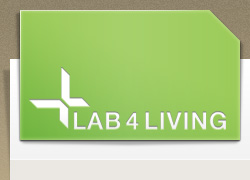All the information needed to submit is provided in this ‘Submitting to Design4Health2020′ document.
About the 6th conference
The 2020 conference is hosted by WAAG-technology and society CARE, University of Twente and the University of Applied Sciences Amsterdam, in conjunction with Lab4Living at Sheffield Hallam University, and will be held in Amsterdam, the Netherlands.
Aims and scope
We invite papers from researchers and practitioners across the areas of design, creative practice and health in order to develop new dialogues and offer different perspectives.
Our contributors are placed at the interface of design in health practice and research; our conferences explore creative approaches and perspectives to enhance understanding and experience, and to improve the efficiency of health and wellbeing services and products.
Given that our focus is very much on designing with people instead of for, we encourage submissions from individuals using services and products, and the sharing of real-life experiences. In particular, we invite papers and posters addressing the specific themes described below.
Design4Health2020: Designing Future Health
The future is now! The overall theme for this conference is Designing Future Health and we particularly welcome submissions which consider the role of design in the future of health.
For example:
- What will health look like in the future?
- Where will health and healthcare be enacted?
- How might our lives be configured?
- What will the future designer look like? What skills will they need?
- How might current research trends (e.g. personalization, interdisciplinarity, circular design) translate into this future for design for health?
We invite participants to share work which interrogates methods, ethics, evaluation and which demonstrates how knowledge can be mobilized.
We also ask when the papers are submitted if the author(s) want to bring in an Artefact that will be shown at the exhibition.
Submissions which consider how past trends and current research might inform future practice are encouraged. For instance, papers which look to the past to build our understanding of citizenship, public health, buildings, and those which reflect on how the role of the designer and healthcare practitioner continues evolve.
Themes
1 Meta-themes
We welcome papers focussed on Methods, Ethics, Evaluation, Theory-informed Design, Education and Training that cross-link into one or more of the themes listed above.
1
2 Designing citizen science and community-driven care
- Person-centred care
- Co-production of products and services
- Hacking healthcare for better care (by both patients, families, communities and healthcare professionals)
- Evidence-informed design: from cities to devices, from systems to service
- Evidence-informed care practices
- Communities of Care
- Empowering informal carers
3 Designing for Urban Vitality
- Improve and maintain healthy and vital lifestyle
- Inclusion – culture, age, literacy
- Sports, exercise science and health
4 Care model design
- Design, health, strategy and innovation
- Service road mapping
- Healthcare value chain
- Integrated care
5 Designing personalized eHealth technology
- Personalization of devices, wearables & Assistive technologies, smart materials, robotics
- Screening and assessment for self management and shared decision making
6 Health data design/digital self
- Designing AI
- Privacy and ethics around health data
- Information management, and interpretation of data
- Data visualisation
7 Sustainable Health and Wellbeing
- Public health / global health
- Eco-health
- Health promotion and education
- Circular design
- Eating behaviour / experience of food
- Flourishing, healthy communities
- Physical activity
8 Wildcard: Designing dystopian futures: Why would you do that?
Chindōgu (珍道具) is a prank originating from Japan, which is done by a person seemingly inventing ingenious everyday gadgets that seem like an ideal solution to a particular problem, but are in fact nothing more than a useless gag. How does health respond to the design? Responsibilities and consequences.
- Responsible design for health (incl failures)
- Transhumanism
- Dystopian futures
- Cyborgs
- High tech v. low tech solutions for health and wellbeing: Traditional/indigenous practices, knowledge, experience
Submissions
The deadline for submissions is Sun 1st Dec 2019, Sunday 5th January 2020 23:59 (CET). Submissions should be made online at: https://conference.shu.ac.uk/index.php/events/design4health2020
Submission types
Abstracts: 300 word abstract, 0-3 images. Max. file size 1MB. Please upload your 300 word abstract in Word / .RTF format. Abstracts should respond to one or more of the conference themes above and are submitted to one of the 7 conference tracks. Abstracts are double blind reviewed. Authors of accepted proposals will be invited to present at the conference, and invited to submit full papers before the conference. Full papers of 3000 words should describe the work in more depth, and may be accompanied by up to 7 images. Full papers will be reviewed and accepted papers published in the online proceedings. Selected authors will be invited to submit extended articles for consideration in Design For Health Journal (Taylor & Francis).
Posters: Please upload your Poster proposal as a PDF document (1 side A3), including 150 word text summarizing your work. Max. file size 3MB. Posters should respond to any of the conference themes and are submitted to one Poster track. Accepted poster authors will be invited to develop their work into a poster according to a template provided. Posters are peer-reviewed (not blind).
N.b. if you would like to bring an artefact related to your submission for display in the conference exhibition, please indicate this at Step 1 of online submission. Please enter brief details, including any requirements, in the ‘Comments for Conference Director’ box.
Stylesheet
The stylesheet is based on that used by the journal Design For Health. The following points apply to full papers as well as abstracts:
o Abstracts (not posters) will be double blind reviewed; IMPORTANT: please do not include your name or affiliation or any other identifying information in the abstract.
o The language of the conference is English and all submissions should be in English.
o Spelling should follow English not American style, but with ‘ize’ for words such as organise, (not for words which keep ‘ise’ such as ‘advertise’).
o References should use the Chicago author-date system of referencing. References are not expected in Abstracts, but a maximum of 3 references may be included in an Abstract submission.
o Your abstract should describe the context of the research, questions addressed, how the research has been developed including research methods, findings or conclusions, as appropriate.
o The following unnumbered heading styles may be used:
- Level 1 heading – Bold Initial Caps
- Level 2 heading – Bold Italic Initial Caps
- Level 3 heading – Non-bold Italic Initial Caps
- Level 4 heading – Non-bold Italic Initial Cap. Text runs on. All ranged left, numbers should not be included, no indent below.
o Single quotes should be used, with double quotes for quotes within quotes.
o End notes, rather than foot notes, may be used.
o Tables. Tables should present new information rather than duplicating what is in the text. Readers should be able to interpret the table without reference to the text.
Abstract and Poster Submission checklist
- Abstracts: max. 300 words (including keywords, and a maximum of 3 optional references)
- Posters: 1 side A3 pdf including max. 150 words (including all text)
- Paper abstracts should respond to one or more of the conference themes, describe briefly the context of the research, questions addressed, and how the research has been developed including research methods, findings or conclusions
- Use Chicago author-date system of referencing. References are not expected, but you may include up to 3 references.
- Paper abstracts are double blind reviewed; do not include your name or affiliation or any other identifying information
- File size: Please keep your file size to under 1MB for abstracts, or 3MB for posters
- Artefacts: Please indicate in the ‘Comments for Conference Director’ box at Step 1 of online submission if you would like to bring an artefact related to your submission for display in the conference exhibition. Please provide brief details of what you would like to bring, and any requirements.
- Submit here.
Full paper checklist
- 2000-3000 words, including abstract, keywords, captions and references
- Full papers based on the research described in the accepted abstract
- Use the template provided
- Include a maximum of 8 figures
- Use the Chicago author-date system of referencing. Only list references cited within your paper
- Keep file size under 2MB
- Submit here.
Full details and registration are now open: https://www.aanmelder.nl/design4health2020
Contact for general conference information: Anke de Koning, Universit of Twente, The Netherlands. j.dekoning@utwente.nl


